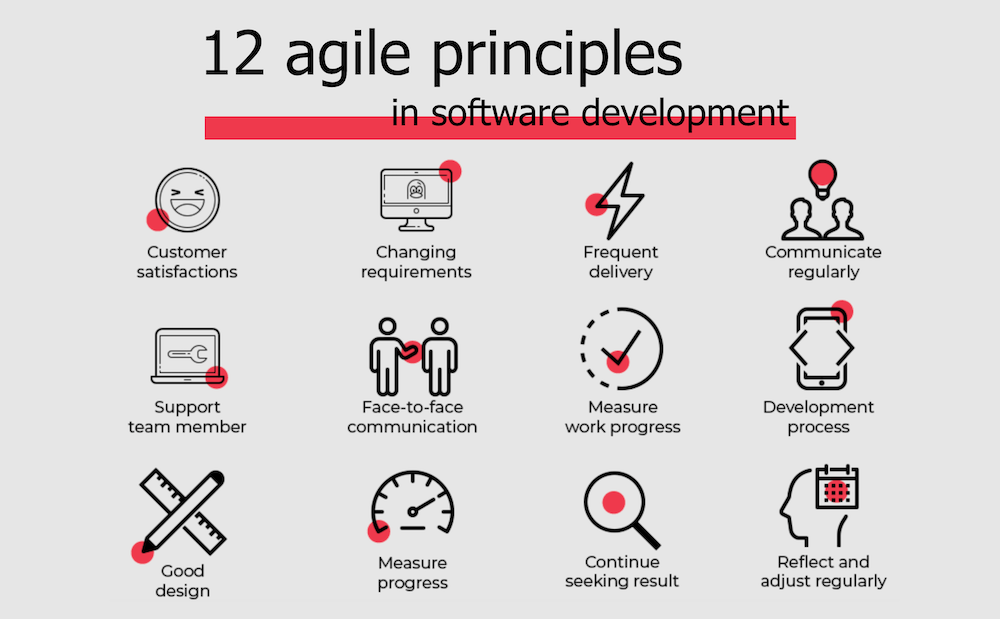The Agile Manifesto is a foundational document that outlines the values and principles of Agile software development. It was created by a group of software developers in 2001 as a reaction to traditional, plan-driven approaches to software development.
The Agile Manifesto emphasizes four key values:
-
Individuals and interactions over processes and tools: Agile prioritizes the importance of people and their interactions within the development team and with stakeholders over relying solely on processes and tools.
-
Working software over comprehensive documentation: Agile values delivering a working product to customers over extensive documentation. While documentation is important, the primary measure of progress is the working software.
-
Customer collaboration over contract negotiation: Agile encourages active involvement and collaboration with customers throughout the development process, rather than relying on fixed contracts and negotiations.
-
Responding to change over following a plan: Agile embraces change and acknowledges that requirements will evolve over time. It values the ability to respond quickly and effectively to changes in customer needs and market dynamics.
The Agile Manifesto is supported by 12 principles that guide Agile software development:
- Customer satisfaction by delivering valuable software frequently, with emphasis on the shorter timescale.
- Welcome changing requirements, even late in development. Agile processes harness change for the customer's competitive advantage.
- Deliver working software frequently, from a couple of weeks to a couple of months, with a preference to the shorter timescale.
- Business people and developers must work together daily throughout the project.
- Build projects around motivated individuals. Give them the environment and support they need, and trust them to get the job done.
- The most efficient and effective method of conveying information to and within a development team is face-to-face conversation.
- Working software is the primary measure of progress.
- Agile processes promote sustainable development. The sponsors, developers, and users should be able to maintain a constant pace indefinitely.
- Continuous attention to technical excellence and good design enhances agility.
- Simplicity -the art of maximizing the amount of work not done- is essential.
- The best architectures, requirements, and designs emerge from self-organizing teams.
- At regular intervals, the team reflects on how to become more effective, then tunes and adjusts its behavior accordingly.
The Agile Manifesto has had a profound impact on the software development industry, promoting iterative and incremental approaches to product development, collaboration, and responsiveness to change.
References:
